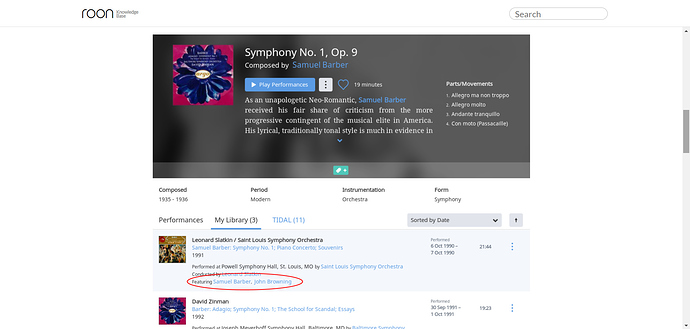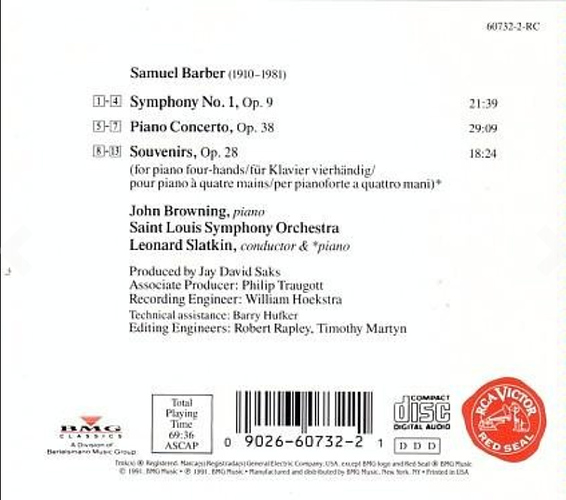Tony, re the Barber conundrum, you (and anyone who relies on a DB-based tagger) are the victim of a kludge tag job.
Most music apps didn’t and don’t recognize the role of Composer in their screen presentations. Users might tag them as such, but early pop-centric software didn’t care to display composers; no vocal demand for it. As a quick fix, some users, advised by the self-same apps, started adding a Primary Artist tag to the Composer. Problem solved: now you could show the composer beneath his/her work! BUT,
The side effect is that this tag turns the Composer into an Artist, a.k.a., a performer of the work. While “real” performers (symphonies, conductors, soloists) deserve the Primary tag, Composers usually do not. The should not be so tagged UNLESS they are also performing the work they wrote. Roon explicitly recognizes Composers but is prepared to ALSO recognize them as a “Primary Artist” (read performer). They allow for dual roles, which is a good thing for Rachmaninov and Joni Mitchell.
To fix your Barber album, Select All Tracks (on Mac, command A), Edit Tracks/Remove Credits, find and remove the credit that shows Barber is a Primary Artist. Instead, add him (if not there already) as a Composer.
Then, Edit Album, find Primary Artists, and delete Barber as a Primary Artist if there. That will remove him as a PrimaryAlbumArtist.
If you are feeling frisky, you can take care of this kludge across your library in one command. Go to the Tracks page, Select All tracks (yes every one in your library), Edit (button top right), and Remove Credits. “Change” Barber from Primary Artist to Composer (actually two steps, a Remove then an Add). Accept the non-existent risk that you have an album where Barber is a performer  [This is a bit trickier with someone like Rachmaninoff who performed a number of his works
[This is a bit trickier with someone like Rachmaninoff who performed a number of his works
If, after reading this, you’re thinking, “Roon should figure this stuff out not me” well, right now it doesn’t. Maybe it will improve, but only if there is a profit motive found in it for someone. I hope it might be Roon, but they allocate resources too.
Probably TMI, but there you go. John


